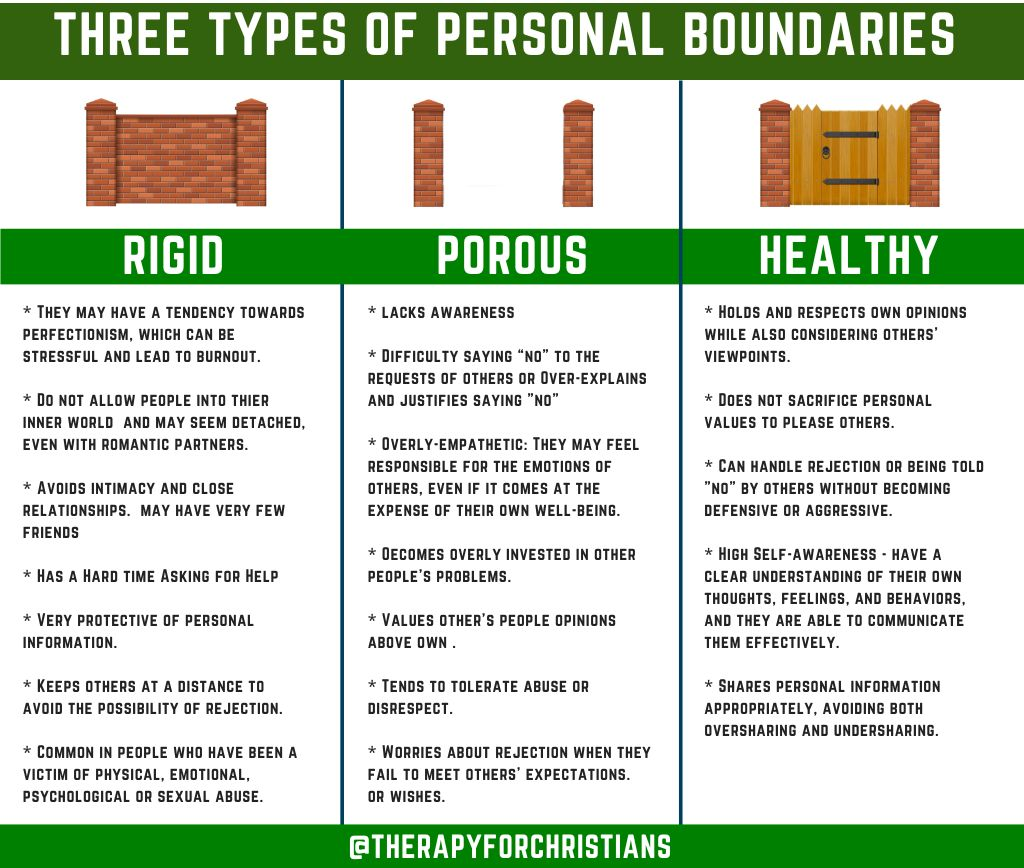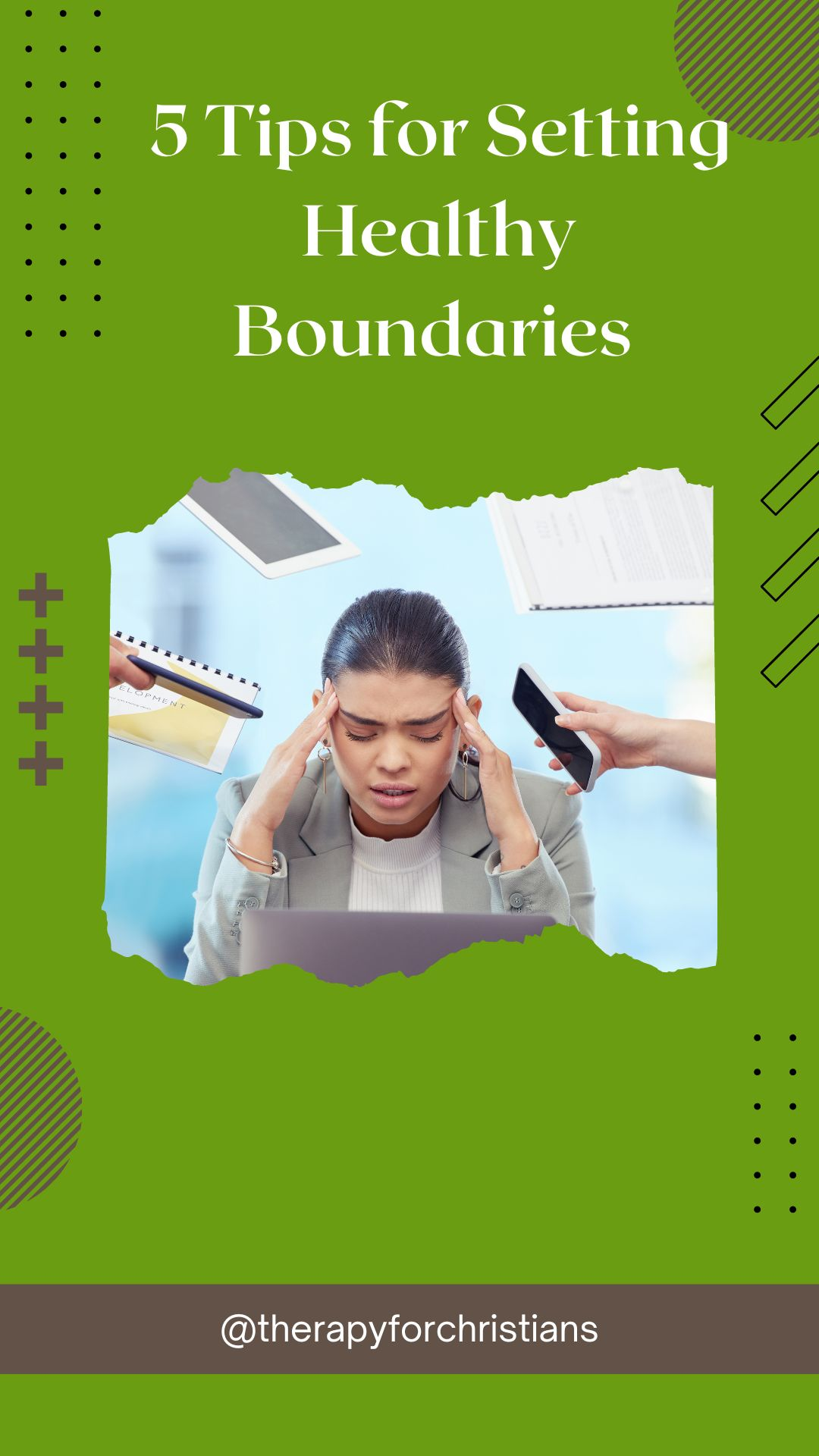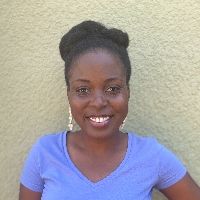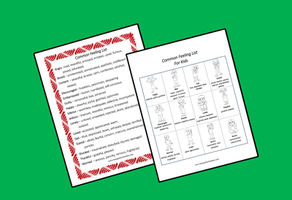

Setting boundaries is an important way of caring for ourselves, as well as others. Creating clear guidelines and understanding our needs helps us build more beneficial relationships while living a more balanced life.
But how do you establish boundaries when the Bible suggests being willing to put others before yourself? In this article, we’ll explore practical tips on setting and maintaining healthy personal boundaries in the Bible while discovering what Scripture has to say about respecting ourselves first. With wisdom from the Bible and real-life advice, you will learn how to foster meaningful connections with those around you without sacrificing your mental health or spiritual growth.

Three Types of Personal Boundaries
"Do not let your neighbor's house become an extension of your own life." ~ Proverbs 25:17
Boundaries are personal property lines that affect all aspects of your life and determine who you are and are not. There are three types of boundaries: Healthy, Rigid, and Porous.
A quick way to determine the type of boundaries you have is your answer to the below situation. Imagine your parent, best friend, boss, or pastor asked you for help at the last minute. However, to help them, you would have to reschedule an appointment you were looking forward to. "Do you feel guilty about saying no?"
Yes, I would feel guilty for saying no.
No, I do not care what other people think.
No, I would not feel guilty for saying no.
If your answer is "yes," then it's likely that your boundaries are porous. You feel bad for setting boundaries and are not very good at setting boundaries. People with porous boundaries often feel overwhelmed and burnt out.
If your answer is "no," you never feel guilty for saying no, then it's likely that your boundaries are rigid. It means you keep building walls. People with rigid boundaries keep themself safe by keeping people out, which is also unhealthy.
If your answer is "maybe," that means you can say "yes" when you can and say "no" when you cannot. This means you have healthy boundaries. And this is essential.
Like fences, boundaries tell us and others what we are responsible for and what we are not responsible for. For example, a fence is a physical boundary on a piece of property. It tells the owner what grass they are responsible for cutting and what grass they are not responsible for. The fence does not mean we will never cut our neighbor's grass, but it helps us be intentional about when we decide to cut their grass.

How Unhealthy Personal Boundaries Develop
As Christians, we often focus so much on loving and giving that we forget our limits and limitations. This, combined with many of us being taught to be quiet as children. Saying no and setting personal boundaries was seen as mean, which is why, as an adult, it's super hard to set boundaries. But you must set boundaries if you want to be calm.
What the Bible Says About Boundaries
A deep dive into Galatians 6:2 & 5 can help you understand why God wants us to establish healthy boundaries. Galatians 6:2 reads, "Carry each other's burdens, and in this way, you will fulfill the law of Christ." Things will happen in our lives that will cause us to have a "burden" that is too great to bear alone. Think of the death of a loved one, the loss of a job, a life-changing medical diagnosis, or a global pandemic. When any of these situations occur, God wants us to deny ourselves and do for others what they cannot do for themselves. When we do this, we exemplify Christ's, sacrificial love. The same love Jesus Christ showed for us when He died on Calvary's Cross.
However, verse 5 sheds more light on the subject. It reads, "for each one should carry their load, " meaning there are some things in life that God expects us to deal with directly. There are our personal "loads" like obtaining consistent employment, managing our households, and healthily expressing our emotions.
Diving into the Greek meaning of burden and load provided further insight into when we should say no without guilt. The burden is a Greek word that means "excess burdens," or burdens that are so heavy that they drag us down. These difficulties are similar to boulders. They can injure us if we attempt to carry them alone.
On the other hand, the Greek word for load means "cargo" or "the burden of everyday toil." This term refers to the things that we all have to do daily. These sacks are similar to bookbags. Even when loaded with "books," bookbags are designed to be carried by one person.
People who behave as if their "boulders" are regular loads and deny assistance or as if their "daily loads" are boulders, they should not have to lift cause problems. These two situations result in either permanent pain or irresponsibility.
Please think of the forty-year-old living in their parent's basement playing video games full time. Or the person who never shares their cancer diagnosis until they are on life-support in the hospital. It is critical to figure out who "me" is, where my duty ends, and someone else's starts, lest we remain in pain or become reckless.
Tips for Setting Healthy Boundaries
Now that we've looked at why setting boundaries is necessary, here's how to do it in five easy steps:
Step 1: Figure out Your Boundaries
To establish personal boundaries, you must first understand what they are. We must intentionally sets boundaries that align with God's boundaries as outlined in His Word. Then your values include family, fitness, innovation, and love. There is very little reason to set limits if you do not know what you are trying to defend in the first place.
Consider the following questions:
What kinds of activities do I embrace and deny in my interpersonal relationships?
What am I willing to do for others, and what am I reluctant to do?
What are the things that are most important to me?
What do I want to safeguard?
What am I looking for in a relationship? For example, love, support, and mentorship
What part of this relationship am I willing to play? For example, a caregiver, a friend, or a daughter.
As you consider the above questions, go to God the Holy Spirit in prayer.

Step 2: Make a strategy.
When you want to communicate a boundary to someone else or put one in place, you are more likely to succeed if you plan what you will say, when, and how you will say it. As you plan what to say, do it calmly, firmly, respectfully, and in as few words as possible.
As you are planning what to say, consider the following questions:
What's the message I want to get across to this person?
What am I willing and unwilling to accept?
What am I willing and unwilling to accept?
What has kept me from setting boundaries with this individual, and what can I do to make this work?
What is the safest way for me to communicate?
What do I need from them, and how do I want them to respond?
Step 3: Make your boundaries known.
It's time to communicate your limits now that you've established them and devised a strategy. You do not need to explain why this boundary is essential to you, but this can be helpful for the other person to understand your point of view.
When you identify the need to set a boundary, do it calmly, firmly, respectfully, and in as few words as possible.
Do not justify, get angry, or apologize for your set boundary.
You are not responsible for the other person's reaction to the boundary you are setting. You are only responsible for respectfully communicating your boundary. If it upsets them, know it is their problem.
Some people, especially those accustomed to controlling, abusing, or manipulating you, might test you. Plan on it, expect it but remain firm.
Remember, your behavior must match the boundaries you are setting. You cannot successfully establish clear boundaries if you send mixed messages by apologizing.
At first, you may feel selfish, guilty, or embarrassed when you set a boundary. Do it anyway and remind yourself you have a right to self-care. Setting boundaries takes practice and determination.
Don't let anxiety, fear, or guilt prevent you from caring for yourself. You need to develop boundaries when you feel anger, resentment, whining, or complaining. Listen to yourself, determine what you must do or say, then communicate assertively.
Learning to establish personal boundaries that honor God takes time. It is a process. Set them in your time frame, not when someone else tells you. Develop a support system of people who respect your right to set God honoring boundaries. Eliminate toxic persons from your life— those who want to manipulate, abuse, and control you.
When people push back against your boundaries, the Bible tells us to go to the person in private, if he listens and pays attention to you, you have won back your brother. Be if he does not listen, take along with you one or two others, so that EVERY WORD MAY BE CONFIRMED BY THE TESTIMONY OF TWO OR THREE WITNESSES.
If you want to dive deeply into biblical boundaries, we recommend the resources below.
Boundaries: When to Say Yes, How to Say No Building Better Boundaries: A 52-Week Devotional
Building Better Boundaries: A 52-Week Devotional I Do Boundaries: A Bible Study
I Do Boundaries: A Bible Study Good Boundaries and Goodbyes
Good Boundaries and Goodbyes
Final Thoughts on Biblical Boundaries
The Bible teaches us to create boundaries and relationships that reflect God's character and will. These boundaries should be set with clear communication, respect for yourself and others, and a soft answer when needed.
Healthy personal boundaries involve saying yes or no, depending on what we can or cannot do. We must establish personal boundaries to ensure we do not become overwhelmed or burnt out. By understanding what burdens and loads are, we can appropriately say yes or no when necessary. To set healthy boundaries, we need to figure out what our boundaries are, communicate them clearly, learn to say no, seek support, and practice self-care. By doing so, we can foster meaningful relationships, grow spiritually, and live a balanced life.
Before you leave, we would appreciate it if you helped us spread the word by sharing, tweeting, pinning, etc. this post.
About the Author:
Corine Williams, Ph.D. is Clinical Psychologist that is currently seeing clients in the States of Maryland, New Jersey, and New York. You can find out more about her practice by visiting www.therapyforchristians.com/corinewilliams. In addition to providing individual therapy, Dr. Williams is also passionate about writing books and designing merchandise that educates, uplift, and normalizes mental health subjects in the Christian community. You can find out more about her at www.booksbycorine.com or by visiting her amazon profile here: https://www.amazon.com/Corine-Hyman/e/B00AWZ5FL2
Help us increase mental health awareness in the Christian community by donating through our paypal link here: www.paypal.com/therapyforchristians, joining our mailing list by clicking below, or join our provider list here: Provider listing
Disclaimer: the information, including but not limited to, text, graphics, images and other material contained on this article are for informational purposes only. No material on this site is intended to be a substitute for professional medical advice, diagnosis or treatment. If you are looking for a Christian counselor near you, please check out our directory located here: Christians Therapist Near Me
.png)












